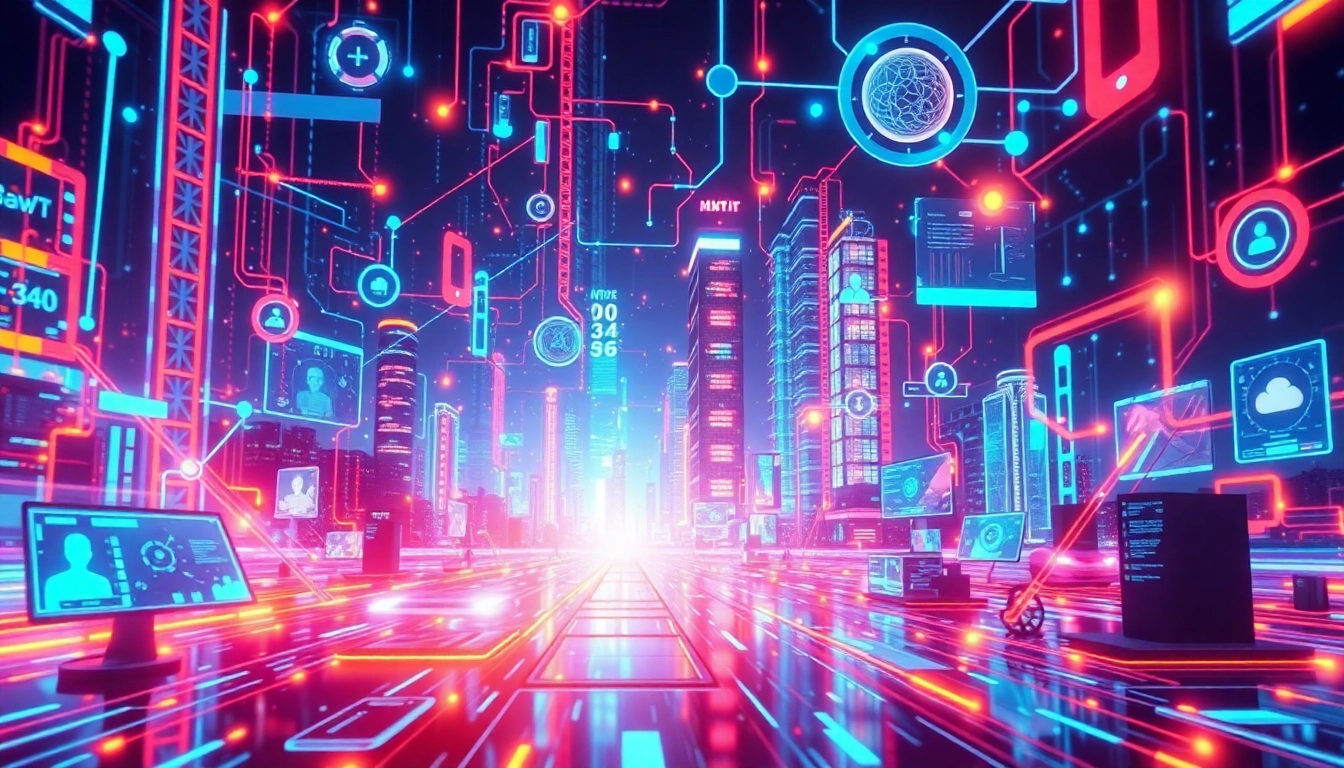Technology Explained: Innovations, Types & Future Trends in 2024

In today’s rapidly evolving world, technology is the driving force behind innovation, societal change, and economic growth. From smartphones and smart homes to AI-powered solutions and quantum computing, technological advancements are transforming every aspect of our lives. Whether you’re a tech enthusiast, a business leader, or simply curious about the future, understanding the fundamentals and latest trends in technology is essential. This comprehensive guide explores what technology truly is, its main types, how it is revolutionizing industries, the emerging trends for 2024, and how you can stay updated with the fast-paced world of innovation.
1. What Is Technology? Definition and Basic Concepts
What does ‘technology’ mean?
At its core, technology refers to the application of scientific knowledge for practical purposes. It encompasses tools, systems, and processes developed to solve problems, improve efficiency, and enhance human capabilities. From the invention of the wheel to the latest AI algorithms, technology has always been about transforming ideas into tangible solutions that benefit society.
Historical evolution of technology
Technology’s journey spans thousands of years. Early humans crafted stone tools, harnessed fire, and developed agriculture. The Industrial Revolution introduced mechanization, dramatically increasing production and altering social structures. The 20th century saw the rise of electronics, computers, and the internet, paving the way for the digital age. Today, we stand on the brink of a new era driven by emerging tech innovations like AI, IoT, and quantum computing.
Core components of modern technology
- Hardware: Physical devices like computers, smartphones, and sensors.
- Software: Programs and applications that run on hardware.
- Networks: Infrastructure enabling connectivity, such as the internet.
- Data: Information processed and analyzed to inform decisions.
2. Types of Technology and Their Applications
Information Technology (IT) and Computing
IT forms the backbone of modern business and communication. It includes hardware like servers and computers, software solutions, and networking systems. Cloud computing, cybersecurity, and data analytics are integral to digital transformation, enabling organizations to operate more efficiently and securely.
Biotechnology and Healthcare
Advancements in biotech have revolutionized medicine, agriculture, and environmental management. Innovations like CRISPR gene editing, personalized medicine, and biopharmaceuticals are saving lives and improving quality of life worldwide.
Renewable Energy and Environmental Tech
With climate change concerns, renewable energy tech—solar, wind, hydro—plays a vital role. Innovations in energy storage, smart grids, and sustainable materials are shaping a greener future.
3. Emerging Technologies Shaping the Future
Artificial Intelligence and Machine Learning
AI development is transforming industries by enabling automation, predictive analytics, and natural language processing. From chatbots to autonomous vehicles, AI is at the forefront of tech innovations for 2024 and beyond.
Quantum Computing and Blockchain
Quantum computing promises unprecedented processing power, potentially revolutionizing cryptography, complex simulations, and data analysis. Blockchain technology underpins cryptocurrencies and secure digital transactions, fostering trust and transparency.
Internet of Things (IoT) and Smart Devices
IoT connects everyday objects—home appliances, wearables, industrial equipment—creating smart ecosystems. These devices enhance convenience, efficiency, and data collection for smarter decision-making.
4. How Technology Impacts Society & Economy
Digital transformation in industries
Industries from manufacturing to retail are adopting digital tools—automation, AI, IoT—to increase productivity, reduce costs, and improve customer experiences. For example, smart factories optimize supply chains, while e-commerce platforms expand global reach.
Impact on employment and workforce skills
While technology creates new job opportunities, it also disrupts traditional roles. Skills in data analysis, AI development, cybersecurity, and digital literacy are increasingly in demand. Continuous learning and adaptation are key to thriving in the evolving tech industry.
Ethical considerations and digital privacy
Rapid tech development raises concerns over data privacy, surveillance, and ethical AI use. Establishing regulations and ethical standards is vital to ensuring technology benefits society without infringing on individual rights.
5. Frequently Asked Questions About Technology
What are the latest technological innovations?
Recent innovations include AI-powered language models, 5G connectivity, advanced robotics, and sustainable energy solutions. These technologies are shaping industries and everyday life.
How does technology influence our daily lives?
Technology affects how we communicate, work, shop, and entertain ourselves. Smartphones, social media, and smart home devices have made life more convenient and connected.
What are the future trends in technology?
Future trends include AI-driven automation, quantum computing, immersive experiences like augmented reality, and the expansion of IoT ecosystems. These developments will further accelerate digital transformation across sectors.
How can I stay updated with tech advancements?
Subscribe to reputable tech news websites, attend industry conferences, participate in online courses, and follow thought leaders on social media. Continuous learning is essential in the fast-changing tech landscape.
What are common challenges in technological development?
Challenges include cybersecurity threats, ethical dilemmas, high development costs, and managing technological unemployment. Addressing these issues requires collaborative efforts among developers, policymakers, and society.
Conclusion: Embracing the Future of Technology
Technology is an unstoppable force that continues to redefine how we live, work, and connect. Staying informed about emerging tech trends—like AI development, IoT devices, and digital transformation—is crucial for leveraging opportunities and navigating challenges. By understanding the core concepts and latest innovations, you can better participate in shaping a sustainable and inclusive digital future. To dive deeper into the exciting world of tech, explore resources on TechDee and stay ahead of the curve.


